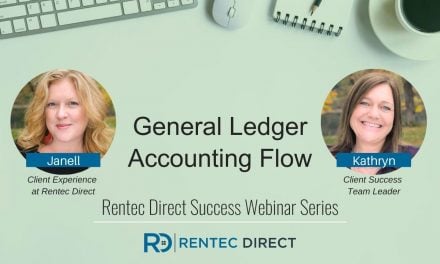
Starting your journey as a new landlord is an exciting process, but there can be a big learning curve for an inexperienced investor. If you are ready to manage your own properties and become a new landlord, ensure you understand these key areas to operate your rental business successfully.
Buying your first rental property can be a huge step to financial freedom through real estate investing. Purchasing your first rental property can leave you with the investing bug that will help you build your portfolio and seek out new opportunities to grow your rental business.
Unfortunately, there is a downside to starting your real estate investment journey–lack of experience. A lack of knowledge can leave you facing unforeseen financial and legal challenges if you are not careful. Avoid those pitfalls by ensuring that you check off these 5 tasks you must do as a new landlord.
Understand the Business Side
A rental property is much more than a simple one-time investment. While your rental can ideally generate passive income, to truly be successful you need to treat your investment like the business it is. A landlording business can have its share of pitfalls and setbacks–especially if you are unprepared. Consult with an expert to see what you need to get on track for your area. You may consider creating an LLC to help protect your personal assets, or you may want to consider hiring a property management team to tackle the day-to-day tasks that can become time-consuming.
Being a landlord is a hands-on job if you choose to self-manage. Make sure you understand landlord-tenant law in your area and are equipped for emergent and seasonal property maintenance. A wise first-time landlord will consult experts for insight on laws and tax regulations and will set clear expectations for tenants from the start. Consult with a lawyer versed in landlord-tenant law to ensure that you create a solid lease agreement. Be sure that you have put protective regulations in place to ensure that your property is protected from damage and bad tenant behavior.
Learn more: Top tips for Getting Started as a New Landlord or Investor
Get Landlord Insurance
Protecting your investment is crucial for your financial security and for your tenants’ sake. Don’t overlook the importance of getting a landlord insurance policy. While some landlords assume they can rely on their standard homeowners insurance to cover their rental units, homeowners coverage is usually not sufficient to protect an investment property. Insurance designed for rental properties covers a wider scope of incidents than a typical homeowners insurance policy.
Issues like structural damage inflicted by malicious tenants, loss of income from inability to rent a habitable space, and even legal fee coverage in the instance that a tenant sues you, can all become a reason to file an insurance claim as a landlord. None of these would be covered under a typical homeowners insurance policy. You may even find that a typical claim would end up denied under homeowners insurance if your home is tenant-occupied. This makes it imperative that you have the right policy and coverage.
Learn more: Do You Have the Right Insurance for Your Rental Property? | Landlord Insurance vs. Homeowners Insurance
Create a Written Tenant Screening Process
Legal and financial protection for your rental property is key, but if you truly want to make your time as a landlord as headache-free as possible, tenant screening is essential. A great tenant screening process can help you weed out renters who have a demonstrated history of property damage, unpaid rent, or other issues that could cause red flags. While there are tried-and-true methods for dealing with a problem tenant, navigating these issues can be both time-consuming and expensive. For this reason, tenant screening will be a new landlord’s best tool.
Learn more: Questions and Answers | Tenant Screening with Rentec Direct
However, not all tenant screening is equally effective or legal. It’s important to to be aware of tenant screening processes in the context of compliance with Fair Housing laws. A written tenant screening process can ensure that you are being impartial and legally appropriate when assessing potential tenants’ qualifications. Having your process documented can make it easy for you to check all the boxes when evaluating applicants. It is also the best way to avoid discrimination lawsuits. Without tenant screening criteria, a fight over the rejection of a rental application may boil down to “he said – she said” or baseless claims that you harbor discriminatory opinions. Avoid this unnecessary fight by creating clear, written screening requirements and sticking to them – every time.
Learn more: How to Create Written Tenant Screening Criteria
Create a Vendor List
No matter how much time and effort you put into maintenance, emergencies still happen. There will come a day when you will need to hire a contractor to do a job quickly and efficiently that you are unable to do yourself. You may even find that you do not have the time or skillset to safely complete certain vital tasks related to your rental’s maintenance or habitability. Some projects–like electric work require a licensed contractor to complete the job.
Regardless of the reasons, you will eventually need to outsource jobs to trusted contractors, and it can be difficult to do the research required to find a great vendor in an emergency situation. Save yourself a headache and ensure the job gets done right the first time by creating a vendor list. Remember that vendor screening is similar to hiring an employee, you’ll want to apply careful attention to the interview process. Vendors represent you to your tenant, so be sure they leave a positive impression.
Use your professional network to find referrals, do an online search and read reviews, and consider hiring a vendor for a small job to see how well it gets done. Once you’ve found a few great vendors, compile a contact list to ensure that you have all the info you need if your tenant’s pipe bursts in the next winter storm.
Learn more: 5 Step Approach to a Successful Vendor List
Get a Landlord Software or Property Management Software
Being a DIY landlord requires you to wear a lot of hats and take on a lot of challenges. Finding ways to offload tasks or simply make daily tasks more time-efficient is vital for a successful landlord business. Property management software is key for this reason. Just think about all the tasks a landlord needs to accomplish to find success.
A landlord’s job consists of:
- Prepping the rental unit for tenancy
- Marketing the rental unit
- Overseeing Tenant Leads, Applicants, and Tenant Screening
- Navigating Leasing, Inspections, Security Deposits
- Maintenance Requests and Tenant Communication
- Handling monthly rent payments
- Supervising move-out procedures
- Navigating Taxes and Accounting
- And so much more!
Learn more: Do I Need a Property Management Software?
Organizing all of your tasks should be the least of your worries. Don’t bother with trying to track with a pen and paper. A landlord software (often known as a property management software) saves you huge chunks of time. It can make it simple to fill vacancies, communicate with tenants, and with online payments, your renters are more like to pay rent on time! Take the stress and brainwork out of maintenance reminders and accounting. Keeping all of your rent-related information in one secure place will ensure that you have more bandwidth to tackle more important projects. With a management software, you’ll be able to focus on your overall goals–whether that goal is building your portfolio or dedicating more time to your family, friends, and hobbies.





